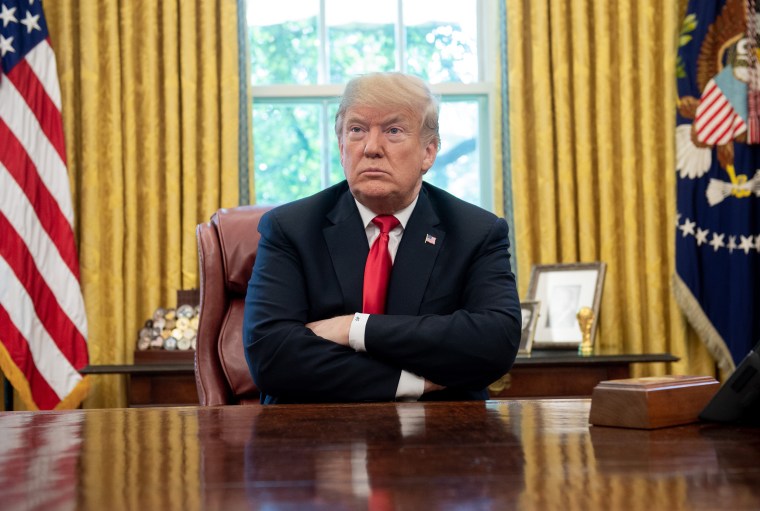Those on Donald Trump's contact list have received some frenzied messages recently about Georgia's U.S. Senate runoff elections.
As Politico reported this week, the outgoing president wrote in a recent text message, "We MUST defend Georgia from the Dems!" In another, the Republican wrote, "I need YOU to secure a WIN in Georgia." Trump pleaded a few days later, "Help us WIN both Senate races in Georgia & STOP Socialist Dems."
Many of the president's followers who received the messages likely assumed that if they did as Trump requested, and sent him some of their money, their contributions would go toward helping Republican Sens. Kelly Loeffler and David Perdue. But as we discussed the other day, the fine print in the solicitation makes clear that Trump doesn't have to give any of the money to the GOP candidate. It's instead going to the president's Save America political action committee, which in turn can direct funds into Trump's pocket.
Of course, Team Trump could invest some or all of that money into the Georgia races, even if the fine print makes clear it doesn't have to. But as HuffPost noted yesterday, the president's operation, at least for now, is choosing not to spend any money on those contests.
President Donald Trump has invoked the Georgia Senate runoffs dozens of times over the past month while raising money for his $100 million-plus "leadership" political committee — but has not reported spending a dime on those races.
HuffPost did an analysis of all "independent expenditures" reported to the Federal Election Commission through yesterday. It found 114 different groups have spent $172.6 million, but Trump's operation was not among them.
Robert Maguire, a campaign finance expert with the watchdog group Citizens for Responsibility and Ethics in Washington, said in response, "It would suggest that the PAC is blatantly lying to its supporters to raise money that President Trump could use for his own personal benefit. We've seen lots of scam PACs over the years, but never one tied so closely to a president."
The phenomenon of scam PACs emerged gradually over the course of the last decade or so. Politico had a memorable report in January 2015, explaining:
Since the tea party burst onto the political landscape in 2009, the conservative movement has been plagued by an explosion of PACs that critics say exist mostly to pad the pockets of the consultants who run them. Combining sophisticated targeting techniques with fundraising appeals that resonate deeply among grass-roots activists, they collect large piles of small checks that, taken together, add up to enough money to potentially sway a Senate race. But the PACs plow most of their cash back into payments to consulting firms for additional fundraising efforts.
Trump's operation isn't identical, but it's similar. A recent Politico report noted that the outgoing president's new entity -- a leadership PAC -- is "a type of vehicle popular with both parties on Capitol Hill but long derided by watchdogs as essentially a type of slush fund, with few restrictions on how the money they raise can be spent."
The result is a dynamic in which Trump can beg for cash with messages such as, "I need YOU to secure a WIN in Georgia," and then not spend any of the money generated by the appeal in Georgia.
It was seven years ago when MSNBC's Chris Hayes wrote, "Much of movement conservatism is a con and the base are the marks."
It's a line that continues to resonate for a reason.

